News
Why Northerners don’t call Tinubu “Jagaban”
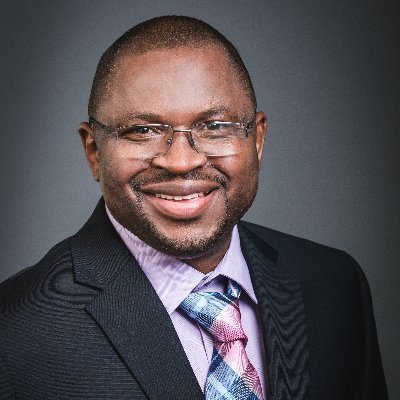
By Farooq Kperogi
Southern Nigerians have asked me two persistent, trivial questions about President Bola Ahmed Tinubu. The first is why most Hausa-speaking northerners don’t call Tinubu “Jagaban” as a standalone title like southerners do. Since I am from Borgu, I’ve also been asked why Tinubu was knighted as the “Jagaban Borgu” or the “Jagaba of Borgu.” And what does the title mean, anyway?
I didn’t think the questions were worth a response, much less a column-length one, because, until now, Tinubu was either just a major, if unofficial, political player in the Buhari regime or a candidate for president. Now that he is president, I think these questions are deserving of a response in the interest of historical and political education.
Hausa-speaking northerners don’t say “jagaban” as a stand alone word because it is ungrammatical in their language. The usual word is “jagaba.” When it transforms to “jagaban” it must be followed immediately by a place name because the additional “n” is a preposition that signifies “of.” So, it is either “the Jagaba of Borgu” or “Jagaban Borgu.” If the title is not associated with a place, it’s simply “Jagaba,” not “Jagaban”
To say “Jabagan of Borgu” is to commit an ungainly interlingual prepositional tautology since “n” and “of” mean exactly the same thing. Of course, interlingual tautologies are not uncommon. For example, we say Aso Rock even when “aso” means “rock” in the Gbagyi language. We say “Lake Chad” even when “chad” means “lake” in Kanuri. And we say “Sahara Desert” even when “sahara” means “desert” in Arabic.
Since linguistic habits often form and evolve outside notions of correct usage, I won’t be surprised if even Hausa-speaking northerners start to call Tinubu “Jagaban”—or even “Jagaban of Borgu.” Nigeria’s southwest is, after all, the country’s sociolinguistic pacesetter because of the centrality of Lagos as the cultural capital.
So, what does “jagaba” mean? Well, it’s the Hausa word for chief warrior, warlord, frontrunner, or simply a brave man. It’s derived from “ja,” which means pull and “gaba,” which means front in the Hausa language. A jagaba is, therefore, someone who leads from the front, which is another way of describing a war commander. In other words, “Jagaban Borgu” or the “Jagaba of Borgu” means the Chief Warrior of Borgu.
The title was conferred on President Tinubu in February 2006 by the late Alhaji Haliru Dantoro who was Emir of Borgu in New Bussa from 2002 to 2015. Dantoro and Tinubu struck up an enduring, if unusual, friendship in 1992 when both of them served as senators in IBB’s abortive Third Republic. Dantoro was a senator on the platform of the National Republican Convention (NRC) and Tinubu was elected on the platform of the Social Democratic Party (SDP).
Although they belonged to different political parties, had diametrically opposed ideological temperaments, and Tinubu was much younger than Dantoro, they hit it off and sustained their friendship even after Sani Abacha dissolved the senate.
On February 26, 2006, exactly four years after Dantoro became emir, he knighted Tinubu as “Jagaban Borgu” (or the Jagaba of Borgu) and Remi Tinubu, his wife, as Yon Bana Jagaban Borgu.“When God made me the Emir, I said this man was there when I was in dire need of help, so why can’t I use my position to make him what I feel will help him in future politically?” Dantoro said in a news interview before his death.
Dantoro’s graciousness toward Tinubu doesn’t come to me as a surprise. As I pointed out in my November 07, 2015, column titled “Tribute to Haliru Dantoro, Emir of Borgu,” Dantoro was a conciliatory, even-tempered, and pleasant person who loved to build bridges across cultures, regions, ideologies, and faiths. Six months before his death, former President Muhammadu Buhari testified that even though he imprisoned Dantoro in 1984, along with other Second Republic politicians, he forgave him and even went “ahead to establish [a] very strong and cherished personal relationship” with him.
Dantoro and my father’s immediate younger brother, J.B. Kperogi, were also fierce political rivals in the Second Republic in the old Borgu, yet when I had a chance to meet him in 1999 as a young reporter and he recognized me as the nephew of his former political opponent, he was kind and gracious to me, asked after my uncle, and emphasized the importance of unity in the old Nigerian Borgu that is now splintered in parts of Kwara, Niger, and Kebbi states.
Having said this, it’s important to state that “jagaba” is not a Borgu title; it’s borrowed from Hausa land. The ancient Borgu empire was a pluri-ethnic, confederate polity and was peopled by many ethnic groups, but mostly by the Baatonu (whom Yoruba people call Bariba, Ibariba, or Baruba), the Boko (or Bokobaru/Bisa), the Fulani, the Kambari, and the Dendi people.
Ancient Borgu stretched from what is now northeastern Benin Republic (where a Borgou state exists) to present-day Baruten and Kaiama local governments in Kwara State; Borgu and Agwara local governments in Niger State; and Bagudo and Dandi local governments in Kebbi State.
In 1904, Nigerian Borgu, which Lord Salisbury once angrily derided as “a malarious African desert…not worth a war,” was initially designated as a province by British colonizers. That was the equivalent of a state in modern parlance. It was later downgraded to a “division” of several provinces, including Kebbi Province, Kontagora Province, and Ilorin Province because it wasn’t economically self-sustaining.
When Kwara State was created in 1967, most of Borgu (except Bagudo and Dandi) became a part of the state and existed as Nigeria’s largest local government area until August 27, 1991, when IBB carved out what is now Borgu and Agwara local governments to Niger State.
I don’t know why Dantoro didn’t give Tinubu a title that is native to the Bisa/Boko-speaking people of New Bussa, but Professor Halidu Usman, the Emir of Desa (known as Ilesha Baruba by Yoruba people) in the Baruten Local Government in Kwara State once defended handing out Hausa-derived traditional titles because, according to him, the repertoire of native Borgu titles is severely limited and has been exhausted in light of the changing cultural environment.
In any case, Borgu has always been a melting pot that fuses multifarious cultural influences from far-flung places. Many historic and deeply entrenched Borgu royal titles have Hausa or Kanuri roots. Take Kilishi Yeruma, for example. It is a fossilized, time-honored title in all of Borgu for the heir apparent to the throne. It is derived from a fusion of Hausa and Kanuri.
Kilishi is the Hausa word for rug (which symbolizes the throne) and Yeruma is the corruption of the Kanuri “yerima,” which means prince. The town of Kishi in the Oke-Ogun area of Oyo State, was founded by a Borgu prince called Kilishi Yeruma, and Kishi (or Kisi) is the short form of Kilishi. It’s a history people of Kishi are intimately familiar with and proud of. That is why the Iba of Kishi attends the yearly Gaani festival in Borgu.
Interestingly, when I discussed Tinubu’s Borgu title with my paternal uncle a few days ago, he jokingly wondered if Tinubu was aware that he was shirking the duties his title required of him by removing fuel subsidies, which has multiplied the deprivation of border communities such as Borgu.
Business
Dangote Refinery to supply 1.5bn litres of petrol monthly
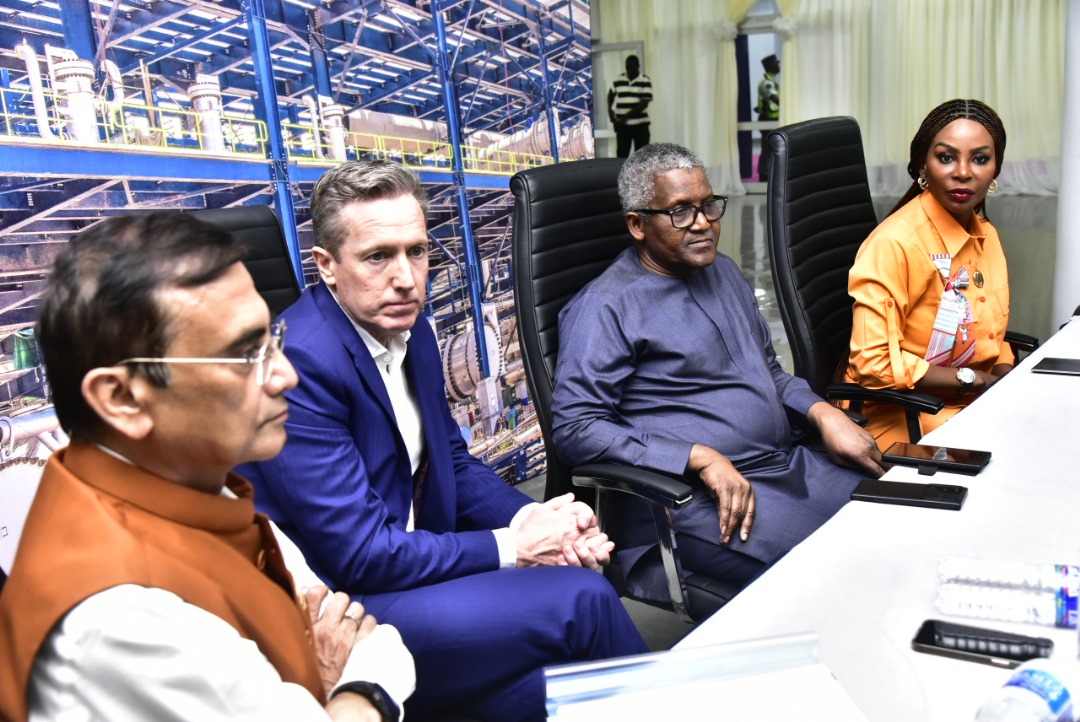
….Writes NMDPRA, Engages Marketers to Stabilise Fuel Market
Photo caption: L R: Chief Executive Officer, Dangote Fertiliser Limited, Vishwajit Sinha; Chief Executive Officer and Managing Director, Dangote Petroleum Refinery, David Bird; President and Chief Executive, Dangote Industries Ltd, Aliko Dangote; Managing Director and Chief Executive Officer, South South Development Commission, Usoro Akpabio, during the visit of SSDC members to the Dangote Petroleum Refinery and Fertiliser Plant in Lagos on Sunday, November 30, 2025.
Dangote Petroleum Refinery has announced plans to supply one billion five hundred million litres of Premium Motor Spirit (PMS) monthly to the Nigerian market in December 2025 and January 2026, a move aimed at ensuring uninterrupted nationwide fuel availability through the festive season and into the New Year.
President and Chief Executive of Dangote Industries Limited, Aliko Dangote, disclosed the plans at the weekend, noting that the refinery will make available 50 million litres of PMS daily beginning December 1.
“In line with our commitment to national wellbeing, and consistent with our track record of ensuring a holiday season free of fuel scarcity, the Dangote Petroleum Refinery will supply 1.5 billion litres of PMS to the Nigerian market this month. This represents 50 million litres per day. We are formally notifying the Nigerian Midstream and Downstream Petroleum Regulatory Authority (NMDPRA) of this commitment. We will supply another 1.5 billion litres in January and increase to 1.7 billion litres in February, which translates to about 60 million litres per day,” Dangote said.
Photo caption: L R: President and Chief Executive, Dangote Industries Ltd, Aliko Dangote; Managing Director and Chief Executive Officer, South South Development Commission, Usoro Akpabio, during the visit of SSDC members to the Dangote Petroleum Refinery and Fertiliser Plant in Lagos on Sunday, November 30, 2025.
Speaking during a visit by the South-South Development Commission (SSDC) to the refinery and the Dangote Fertiliser complex, he stated that the facility currently has adequate stock and is producing between 40 and 45 million litres of PMS daily. He added that the daily supply of 50 million litres should dispel long-standing claims that domestic refineries lack the capacity to meet national demand.
Dangote also revealed ongoing engagement with petroleum marketers to strengthen distribution systems, including expanding the use of CNG-powered haulage.
“Our priority is to ensure Nigeria receives the products it needs. This is not driven by profit motives; it is about guaranteeing the availability of essential energy products. It is similar to the transformation we delivered in the cement sector,” he added.
He further noted that the refinery is progressing with its expansion plan to reach a capacity of 1.4 million barrels per day. More than 100,000 workers are expected to be involved in the expansion of both the refinery and the fertiliser complex. Dangote emphasised that the Group remains committed to its vision, driven by the strong public support for the company’s role in shaping Nigeria’s economic development.
During the visit, the Managing Director of SSDC, Usoro Offiong Akpabio, commended Dangote’s leadership and his continued contribution to strengthening Nigeria’s industrial capability, national energy security and long-term economic competitiveness.
She described the South-South region as Nigeria’s natural energy corridor, with vast crude oil reserves, gas infrastructure, maritime assets, agro-industrial activity and emerging industrial clusters. She noted that deeper collaboration between the region and the Dangote Group could unlock opportunities in product distribution, CNG infrastructure, petrochemicals, agriculture, and employment creation.
Akpabio added that such partnerships would advance the Federal Government’s energy stability agenda and position the South-South as a strategic growth hub for the Dangote Group.
“As the statutory development body for the South-South, SSDC is mandated to drive regional economic development, infrastructure integration, human capital advancement, and private-sector–led growth. In this regard, we stand prepared to support State-level policy and regulatory support for Ease-of-doing-business across our six states. Enabling environments for Dangote Group’s expansion into strategic sectors such as gas processing, agro-industrial value chains, renewable energy, logistics, and export-oriented manufacturing,” she said.
In a letter from the refinery’s Managing Director, David Bird, to the Authority Chief Executive of the NMDPRA, the company reaffirmed its readiness to host NMDPRA officials onsite at the refinery from December 1st to verify and publish its daily supply volumes. The refinery also sought the Authority’s support to ensure unhindered importation of crude, feedstocks and blending components, as well as smooth vessel loading for product evacuation.
“In the spirit of full transparency to the public we are willing to publish our daily production and stock volumes (online and print media),” Bird stated. “We seek the full support of NMDPRA to allow Dangote refinery to import our crude, feedstocks and blending components unhindered as well as support the lifting of our products by vessel. We continue to experience delays in vessel clearance which impacts not only the refinery operations but also our customers, adding unnecessary costs and inefficiencies”.

By Bonaventure Phillips Melah
Photo caption: L R: Chief Executive Officer, Dangote Fertiliser Limited, Vishwajit Sinha; Chief Executive Officer and Managing Director, Dangote Petroleum Refinery, David Bird; President and Chief Executive, Dangote Industries Ltd, Aliko Dangote; Managing Director and Chief Executive Officer, South South Development Commission, Usoro Akpabio, during the visit of SSDC members to the Dangote Petroleum Refinery and Fertiliser Plant in Lagos on Sunday, November 30, 2025.
Dangote Petroleum Refinery has announced plans to supply one billion five hundred million litres of Premium Motor Spirit (PMS) monthly to the Nigerian market in December 2025 and January 2026, a move aimed at ensuring uninterrupted nationwide fuel availability through the festive season and into the New Year.
President and Chief Executive of Dangote Industries Limited, Aliko Dangote, disclosed the plans at the weekend, noting that the refinery will make available 50 million litres of PMS daily beginning December 1.
“In line with our commitment to national wellbeing, and consistent with our track record of ensuring a holiday season free of fuel scarcity, the Dangote Petroleum Refinery will supply 1.5 billion litres of PMS to the Nigerian market this month. This represents 50 million litres per day. We are formally notifying the Nigerian Midstream and Downstream Petroleum Regulatory Authority (NMDPRA) of this commitment. We will supply another 1.5 billion litres in January and increase to 1.7 billion litres in February, which translates to about 60 million litres per day,” Dangote said.

Photo caption: LR: President and Chief Executive, Dangote Industries Ltd, Aliko Dangote; Managing Director and Chief Executive Officer, South South Development Commission, Usoro Akpabio, during the visit of SSDC members to the Dangote Petroleum Refinery and Fertiliser Plant in Lagos on Sunday, November 30, 2025.
Speaking during a visit by the South-South Development Commission (SSDC) to the refinery and the Dangote Fertiliser complex, he stated that the facility currently has adequate stock and is producing between 40 and 45 million litres of PMS daily. He added that the daily supply of 50 million litres should dispel long-standing claims that domestic refineries lack the capacity to meet national demand.
Dangote also revealed ongoing engagement with petroleum marketers to strengthen distribution systems, including expanding the use of CNG-powered haulage.
“Our priority is to ensure Nigeria receives the products it needs. This is not driven by profit motives; it is about guaranteeing the availability of essential energy products. It is similar to the transformation we delivered in the cement sector,” he added.
He further noted that the refinery is progressing with its expansion plan to reach a capacity of 1.4 million barrels per day. More than 100,000 workers are expected to be involved in the expansion of both the refinery and the fertiliser complex. Dangote emphasised that the Group remains committed to its vision, driven by the strong public support for the company’s role in shaping Nigeria’s economic development.
During the visit, the Managing Director of SSDC, Usoro Offiong Akpabio, commended Dangote’s leadership and his continued contribution to strengthening Nigeria’s industrial capability, national energy security and long-term economic competitiveness.
She described the South-South region as Nigeria’s natural energy corridor, with vast crude oil reserves, gas infrastructure, maritime assets, agro-industrial activity and emerging industrial clusters. She noted that deeper collaboration between the region and the Dangote Group could unlock opportunities in product distribution, CNG infrastructure, petrochemicals, agriculture, and employment creation.
Akpabio added that such partnerships would advance the Federal Government’s energy stability agenda and position the South-South as a strategic growth hub for the Dangote Group.
“As the statutory development body for the South-South, SSDC is mandated to drive regional economic development, infrastructure integration, human capital advancement, and private-sector–led growth. In this regard, we stand prepared to support State-level policy and regulatory support for Ease-of-doing-business across our six states. Enabling environments for Dangote Group’s expansion into strategic sectors such as gas processing, agro-industrial value chains, renewable energy, logistics, and export-oriented manufacturing,” she said.
In a letter from the refinery’s Managing Director, David Bird, to the Authority Chief Executive of the NMDPRA, the company reaffirmed its readiness to host NMDPRA officials onsite at the refinery from December 1st to verify and publish its daily supply volumes. The refinery also sought the Authority’s support to ensure unhindered importation of crude, feedstocks and blending components, as well as smooth vessel loading for product evacuation.
“In the spirit of full transparency to the public we are willing to publish our daily production and stock volumes (online and print media),” Bird stated. “We seek the full support of NMDPRA to allow Dangote refinery to import our crude, feedstocks and blending components unhindered as well as support the lifting of our products by vessel. We continue to experience delays in vessel clearance which impacts not only the refinery operations but also our customers, adding unnecessary costs and inefficiencies”.
News
Gunmen abduct five in Enugu community

Some women in Ezimo community, Udenu Local Government Area of Enugu State, on Saturday, staged a protest over the alleged kidnap of five residents and the shooting of another during an attack on the community.
The protesters, who marched through major parts of the community, said the incident had heightened fear and insecurity in the area.
One victim of the attack is currently receiving treatment in the hospital.
A social media influencer, ‘Sen.’ Chijinkem Ugwuanyi, made this known via Facebook on Saturday.
Ugwuanyi revealed that resident who confirmed the incident said recent cases of abductions and shootings had left the community unsafe, prompting the women to demand urgent government intervention.
In a video shared on Ugwuanyi’s Facebook page, the protesters called on the Enugu State Government and security agencies to step in and restore peace, warning that residents could no longer live under constant fear of attacks.
-

 News2 years ago
News2 years agoBreaking: Tinubu’s authentic ministerial nominees
-

 News9 months ago
News9 months agoSenate to speed up conclusion of Nigeria Forest Security Service Bill
-
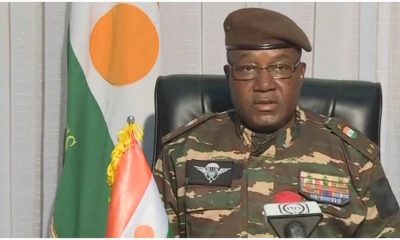
 News2 years ago
News2 years ago“Anytime we want to kill terrorists, President would ask us to take permission from France but they were killing our soldiers-” Niger Republic coup leader
-
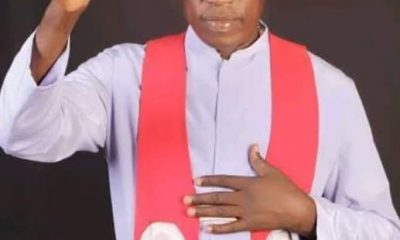
 News2 years ago
News2 years ago“I’m leaving the Catholic church because Bishop Onah is oppressing me,” says Okunerere
-

 News2 years ago
News2 years agoRadio Nigeria’s veteran broadcaster Kelvin Ugwu dies three months after retirement from service
-
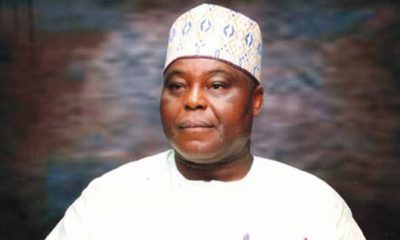
 News2 years ago
News2 years agoDokpesi and the Gazebo Mystique
-

 News2 years ago
News2 years agoTsunami: Tinubu orders dissolution of managements, boards of MDAs, to sack all Buhari’s political appointees
-

 News2 years ago
News2 years agoPersons against Allagoa’s reforms behind protests at NSITF
